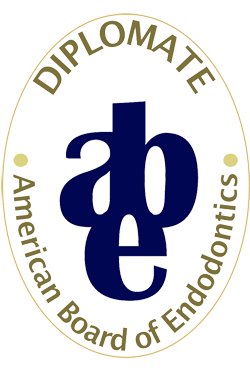 And How Endodontists Can Help
And How Endodontists Can Help
A cracked tooth can be a source of discomfort and concern, especially if left untreated. While some cracks may seem minor, others can lead to pain, sensitivity, and even infection. For many patients, an endodontist’s expertise is essential in diagnosing and treating cracked teeth effectively.
Understanding the Types of Cracked Teeth
Not all cracks are the same. Endodontists classify cracked teeth into several categories based on severity and location:
- Craze Lines – Superficial cracks that only affect the outer enamel, usually harmless and do not require treatment.
- Fractured Cusp – A piece of the tooth’s chewing surface breaks off, often near a filling, typically doesn’t affect the pulp and is treated with a crown.
- Cracked Tooth – A crack that extends from the chewing surface toward the root, early treatment is crucial to prevent the crack from spreading deeper.
- Split Tooth – A more severe version of a cracked tooth where the crack completely separates the tooth into segments, may require extraction if the crack is too extensive to repair.
- Vertical Root Fracture – A crack that starts in the root and moves upward, often subtle and harder to detect, but can lead to infection or bone loss around the tooth.
Common Causes of Cracked Teeth
Understanding what causes a tooth to crack can help in prevention. Some of the most common causes include:
- Biting on Hard Foods: Ice, nuts, or unpopped popcorn kernels can place excessive force on teeth.
- Bruxism (Teeth Grinding): Chronic grinding or clenching wears down teeth and increases the risk of cracks.
- Large Fillings: Extensive restorations can weaken the remaining tooth structure.
- Trauma: Accidents or sports injuries can result in tooth fractures.
- Age: Teeth naturally weaken over time, making cracks more likely in older adults.
Treatment Options for Cracked Teeth
The treatment for a cracked tooth depends on the crack’s severity and location:
- Bonding – Bonding can seal minor cracks and restore the tooth’s appearance and function.
- Crown Placement – A crown can protect and stabilize the tooth, preventing further damage.
- Root Canal Therapy – If the crack reaches the pulp, root canal therapy is necessary to remove infected tissue and save the tooth.
- Extraction – For severely cracked or split teeth that cannot be repaired, extraction may be the only option. Replacement options, such as implants or bridges, can restore function and aesthetics.
Call Us Today!
Cracked teeth are a common dental issue that, if caught early, can often be treated effectively. Endodontists specialize in saving teeth with cracks, using advanced techniques to restore your smile and relieve pain. If you suspect a cracked tooth or experience any symptoms, don’t delay, call us today—early diagnosis and treatment can make all the difference in preserving your natural tooth.





Comments are closed.